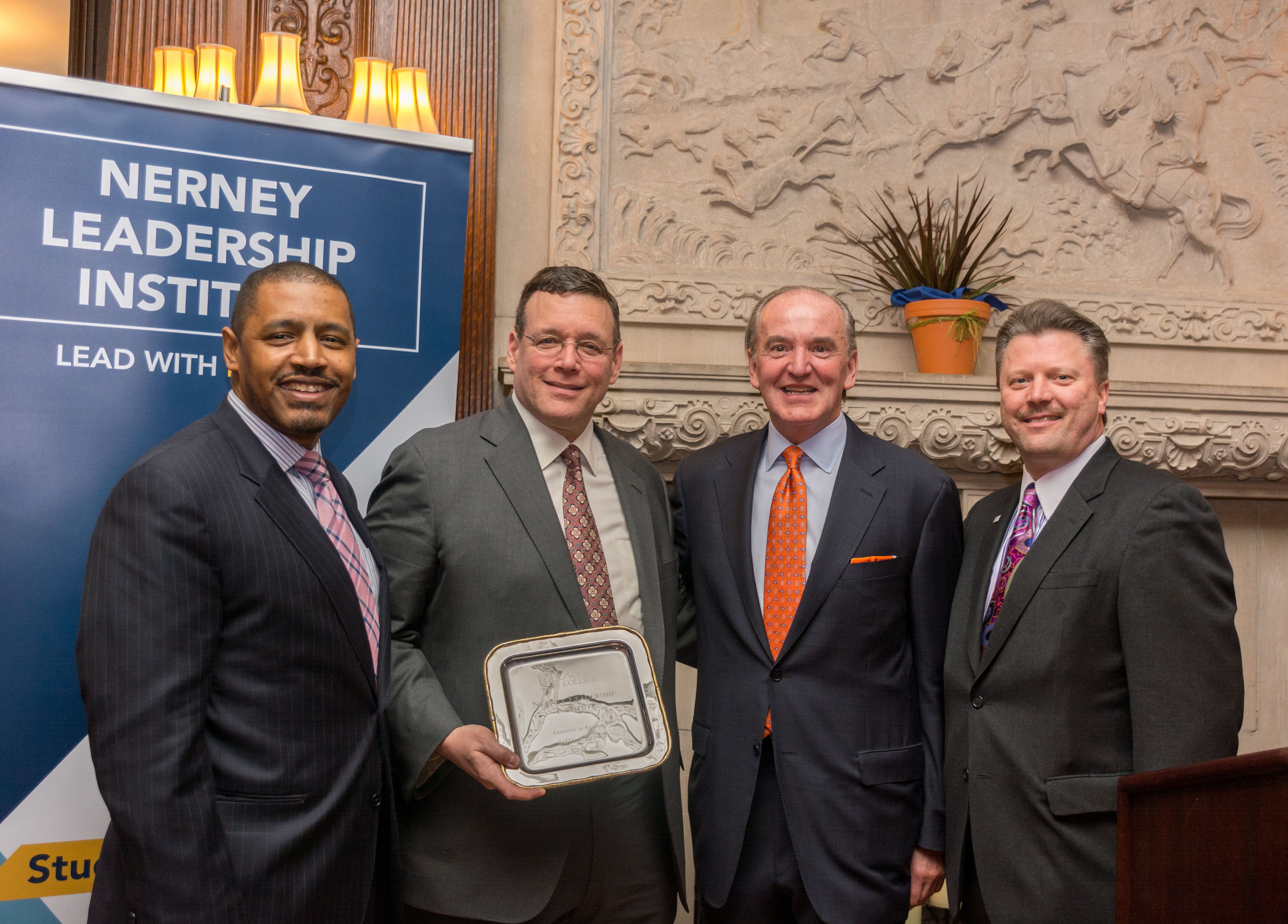All photos by Emily Rowan.
Every year, Cabrini College invites leaders in the corporate and non-profit world to be Executive in Residence, arguably one of the highest honors the soon-to-be university gives.
The honoree spends their time on campus meeting with students, faculty and staff to discuss how they’re making a difference through their career.
According to Cabrini’s website, this leader is selected based on their extraordinary spiritual, emotional and organizational leadership accomplishments.
Jeff Brown, Founder, president and CEO of Brown’s Super Stores, Inc., could not fit this definition more perfectly.
Brown Super Stores is an 11-store supermarket chain in the greater Philadelphia area that breaks every stereotype of a typical neighborhood grocery.
“I think from our perspective we don’t really see ourselves as just grocers. We’re a community hub that everyone utilizes. That alone is a platform to help,” Brown said.
Well Mr. Brown, helping would be considered an understatement.
Brown Super Stores makes it their personal mission to fight what is known as “food deserts.”
The USDA defines a food desert as a “low-access community,” where at least 500 people or 33 percent of the population reside more than one mile from a supermarket or large grocery store (for rural areas the distance is more than 10 miles).
Food deserts have always existed. However there wasn’t always a name for them. At one point there were grocery stores everywhere however various factors made it hard for stores to succeed in impoverished areas. This caused a lot of them to close and create what we call the desert.
“If you don’t have access to a grocery store with fresh products you’re in a food desert. This can lead to obesity which opens the door to all kinds of health issues. Diabetes, hypertension, even some cancers,” Brown said. “The idea in recognizing food deserts is to realize that we have a problem and it’s a problem that would be of big benefit to society to solve.”
Everyone should have the same access to healthy food. According to Brown it’s a basic human right.
“A lot of our stores are really based on things that my customers or members of the community told me that they needed,” Brown said. “They would tell me about a problem they had and my team and I would engineer a solution. The customer really has a lot to do with how our grocery store works.”
Many of Brown’s customer’s in the food desert are very diverse. They come from many different cultures and beliefs.
“I wanted to cater to their needs,” Brown explained during his speech to the Cabrini community.
According to Brown, this process including stocking specific foods and using special preparation for items that are important to Muslims and other religious groups.
This type of sensitivity and cultural awareness is not common among Brown’s competitors.
The Super Stores also provide free classes to the public concerning health and nutrition, work to help their customers find the best medicine possible at a lower cost and seek out youth to hire looking for a second chance.
“The problems that we have today are complicated. The view that the government will just solve these problems has no evidence to support it. The government is not an effective tool on their own to solve problems. I feel that the future of our country and our world has to do with businesses being apart of the solution,” Brown said.
“I think that leaders need to be taught it’s okay to care about people, it’s okay to help people. You still have to make a profit, you still have to balance out what things cost and what the business model is and how to make it sustainable but its okay to care.”
Imagine the world we would live in if every CEO decided to care.
“What’s interesting about Cabrini students is that they graduate with the ability to work in a for-profit company with a common-good mindset,” Brown said. “This I think is so uncommon in our world today and it’s really a head start to training the kind of leaders and thinkers we need.”
Right before Brown ended his Executive in Residence speech, he looked out into the crowd and paused before he made arguably one of the most touching statements of all.
“In order to make a change, the future needs a different type of leader. We want to be this type of leader. The time is now.”



